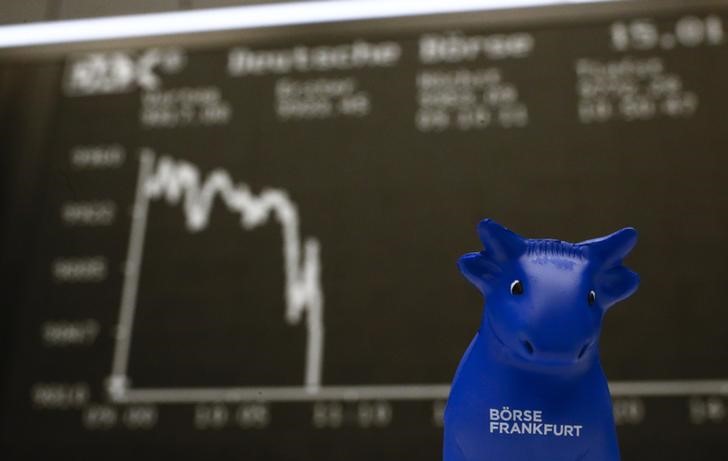This post was originally published on this site
https://i-invdn-com.investing.com/news/LYNXMPEE3O1QH_M.jpg
Investing.com – European stock markets traded lower Tuesday as investors assess the interest rate outlook for 2023 in the wake of the Bank of Japan moving to end its super-easy monetary policy.
At 03:50 ET (08:50 GMT), the DAX index in Germany traded 0.4% lower, the FTSE 100 in the U.K. dropped 0.2%, and CAC 40 in France traded down 0.7%.
European stock indices are following the selloff seen in Asia, with the Nikkei 225 dropping 2.5%, after the Bank of Japan held its benchmark rate at record lows, but widened the range for yield fluctuations in the benchmark government bonds.
This move has been taken as a step toward the country leaving behind its policy of yield curve control and near-zero interest rates as the country grapples with surging inflation.
The European Central Bank raised its interest rates by 50 basis points last week, in another step towards controlling inflation, as did the U.S. Federal Reserve, the Bank of England, and the Swiss National Bank.
German factory gate prices fell 3.9% on the month in November, but the annual figure still stood at a hefty 28.2%.
Elsewhere, European Union energy ministers on Monday agreed on a gas price cap at €180 per megawatt hour, in the latest attempt to lower gas prices that have pushed energy bills higher and driven record-high inflation this year.
In corporate news, Bunzl (LON:BNZL) stock fell 0.6% after the British outsourcing group agreed to acquire four businesses and sell its U.K. healthcare unit.
Orange (EPA:ORAN) stock fell 0.9% after the French telecoms group said its deputy chief executive and head of finance, Ramon Fernandez, is leaving the company.
Oil prices stabilized after early gains as the news from the Bank of Japan raised the prospect of slower growth in the third-largest economy in the world.
However, optimism about a demand pickup in the new year has risen as China, the world’s largest importer of crude, fully reopens from its COVID restrictions.
Additionally, the U.S. government is aiming to refill its Strategic Petroleum Reserve, beginning with a 3 million barrel buy in February, having run it down to its lowest level in nearly 40 years in an attempt to curb prices.
The American Petroleum Institute releases its estimate of U.S. crude oil stocks later in the session, and is expected to show a small drop after the prior week’s hefty build.
By 03:50 ET, U.S. crude futures traded 0.1% higher at $75.42 a barrel, while the Brent contract fell 0.1% to $79.78.
Additionally, gold futures rose 0.9% to $1,813.15/oz, while EUR/USD traded 0.3% higher at 1.0634.

